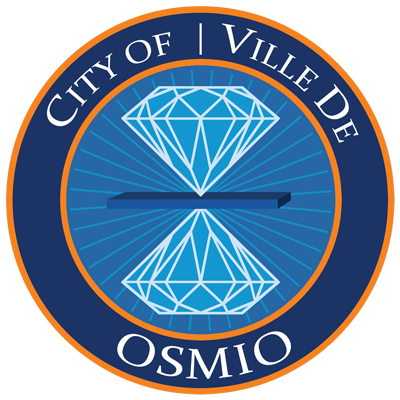Decentralized Governance Does Not Work! Not in Open Source or Any Other Space
Decentralized governance is the underlying principle of open source development. No one can belittle the strides the open source development space has made. Open source software is now driving big businesses.

Large corporations that traditionally preferred to keep their development teams closed are now beginning to appreciate the impact of open-source development. Companies such as Microsoft are building teams of developers whose job is to contribute to open source projects.
Claiming that decentralized governance does not work might therefore sound outrageous to many. However, we can all agree that the open source development world has for long been battling certain challenges and decentralized governance has been unable to solve them.
Open source development has been dealing with challenges such as;
- Security Concerns
- Slow project progress
- Licensing issues
- Lack of customer support for users, etc.
The notion of community contribution is great, but it does not establish any kind of authority. Decentralized governance simply means no governance.
So, am I suggesting that centralized governance? Not at all! At least not the kind of centralized governance that most people would be quick to think of.
I am suggesting Decentralized Authority.
What is Decentralized Authority
Does that even make sense? Most people would wonder.
We don’t want to introduce centralized governance as you know it. In fact, people who have concerns about central governments and authority should be more apprehensive of the idea of decentralized authority.
So, how can we achieve decentralized authority in open source development and other spaces that are banked on decentralized governance?

We need participatory centralized governance.
In other words, I am implying that decentralized authority is the same a participatory centralized governance.
We need to have a centralized authority in which anyone who’s part of the space in question can participate if they have the time, interest, and intelligence. Governance of the authority would be by the people who are part of that space.
For instance, the open-source development space needs professional licenses for developers to solve some, if not all of the challenges it faces. Such licenses can only be issued by a certification authority.
Think of it from the perspective of states vs governments.
A lot of people would assume that government authority and state authority are the same. Government authority is established by the people in the government of the day. State authority is by the people. Think of the authorities that issue birth certificates and identity documents. In as much as they are influenced by the government of the day, they are state authorities and they work for the people.
Participatory centralized governance means the presence of a centralized authority that not controlled by a government, but by the governed.
Now, why is it that decentralized governance does not work?
Security and privacy are some of the biggest concerns in open source development. Recently, the University of Minnesota was banned from submitting code to the Linux Kernel because of submitting buggy and junk code. Some of the code had already been accepted by the community before the ban.
What would prevent malicious contributors from submitting code to a project? Even if you are banned from submitting code today, you can re-join the project using a fake identity.
Businesses have to carefully audit open source code before they use it. Sometimes, the time and personnel it takes to do that are the same as that that would be used to create their own software. That’s one of the reasons why open source developers find it difficult to earn from their work.
What if there was a way for everyone to be accountable for their code?
The solution to these problems is real identities and professional licensing. These can only be made possible by a centralized authority that is controlled by the participants.
We need Authenticity on the internet. We need people to always remain who they say they are.
How do we bring about Authenticity? How do we establish decentralized authority?
At the very foundation of Authenticity is the City of Osmio. Read my post about what the city of Osmio is here.
The City of Osmio
Today, we know public authority by names such as city hall. That’s where all sorts of documents are attested to by professionals such as notaries and justices of the peace. These professionals are commissioned by a duly constituted public authority to apply that authority in attesting to the claims of individuals.

Keep in mind that public authority is not the same as government. Governments might want to instigate their own identity schemes from time to time. In most cases, such schemes are politically motivated. That’s a threat to privacy and one of the reasons why citizens don’t trust governments.
We had mentioned the issue of state vs government authority earlier. Public authority is the domain of states and not governments.
Take for instance the US state department and the US government. The US state department is an example of state authority. It issues the US passport which is honored by many other authorities worldwide.
Think of state as the same idea of a state of things; meaning What is? That has everything to do with truth. That is, citizens claiming things to be true and professionals to whom public authority has been bestowed attesting to those claims. These professionals carry professional and criminal liability if they misuse the public authority given to them.
The City of Osmio is the desperately needed source of worldwide public authority. It is a world city hall that has duly constituted public authority. It was founded on March 7th 2005 at the Geneva headquarters of the International Telecommunication Union.
The city of Osmio can issue identity certificates and also offers an extensive professional licensing program. The program involves the training and issuance of professional licenses for work related to the creation and inspection of secure online spaces.
The city of Osmio has a small office in Geneva but it otherwise has no physical facilities. It is staffed by real people working from locations around the world who conduct the business of its departments and commissions. It has no affiliation to any political entity or body of governance; Not even the ITU from where it was founded. It is governed and accountable to only its residents. Its residents are those who have enrolled on its vital records department.
A decentralized authority, like the city of Osmio, is what all spaces that rely on decentralized governance need to deal with most if not all of the challenges they face. Reliably measurable digital identities and signatures will ensure every piece of code submitted to an open source project is tied to its real developer.
Professional licensing will ensure developers carry professional liability when they put their digital signatures on a piece of open-source code. That will also open an avenue for open-source developers to get fairly compensated for their work. They would get paid for putting their signature on a piece of code to attest that it is safe and reliable. They’d be operating in the same way that architects and structural engineers operate.
